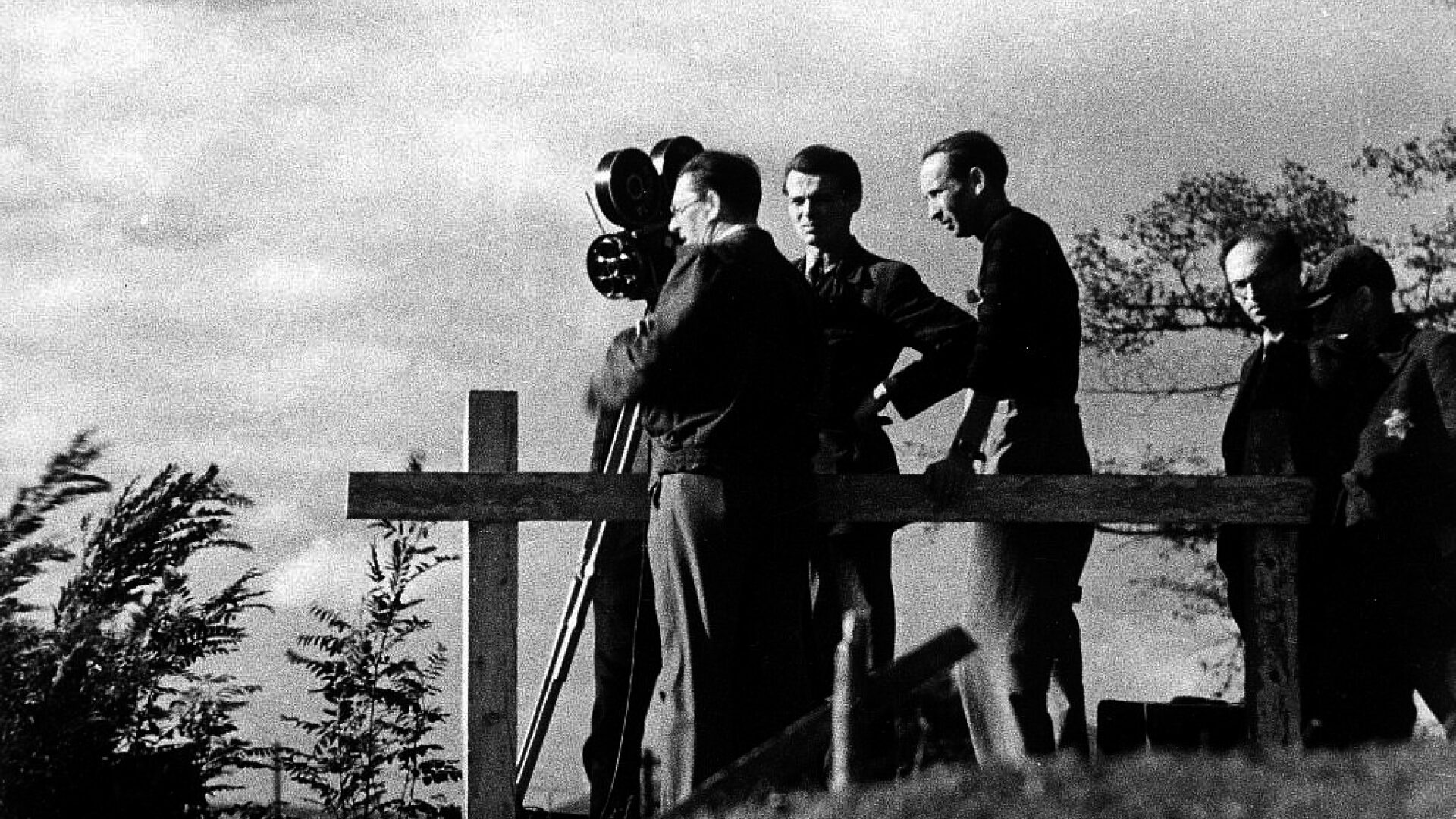Long standing member and past president of the Rotary Club of Glen Eira, Vic, Garry Fabian, has been honoured by the German Government with the prestigious Verdiensorden (Order of Merit) of the German Republic in recognition of his service to the citizens of Baden-Wurtenberg.
Minister-President of Baden-Wurtenberg Herr Winifried Kretchmann nominated Garry for “sharing his experiences and personal story and building bridges of understanding”.
Born in Stuttgart, Germany, on January 11, 1934, like millions of European Jews, other minorities, and opponents of Germany’s fascist regime during the dark years of 1933-45, Garry was deprived of citizenship and his human rights routinely violated.
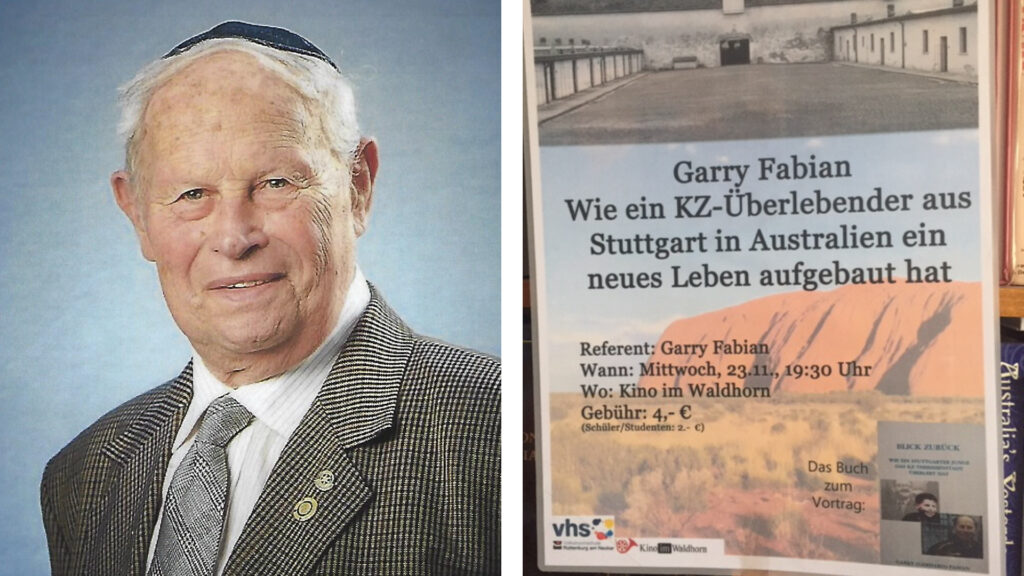
At the age of eight, he and his family were interned at the Theresienstadt ghetto-concentration camp, in the fortress town of Terezín, Czech Republic, where 140,000 Jews were imprisoned during the Holocaust. Of the 15,000 children interned at the camp, only 150 survived.
Unique in the Nazi empire, Theresienstadt served as a transit camp for Czech Jews, who the Germans deported to killing centres, concentration camps, and forced-labour camps in German-occupied Poland, Belorussia, and the Baltic States. It was expected the poor conditions at the camp would hasten the deaths of many deportees until the SS and police could deport the survivors to killing centres in the East.
And indeed, while most of the victims of Theresienstadt were murdered in Auschwitz-Birkenau and other camps, some 33,000 perished on-site from starvation, exhaustion and epidemics.
“Transports continued to arrive from Czechoslovakia, Germany, Austria and other parts of Europe. By the middle of 1943, some 40,000 people were crammed into a village that in normal times accommodated some three or four thousand inhabitants,” writes Garry in his memoir A Look Back Over My Shoulder. “Dirt, disease and hunger were prevalent in all corners of the ghetto. The old and frail died in great numbers. Hand-drawn carts, used as local hearses, were a daily sight and as common as the milk or bread carts in a normal community.
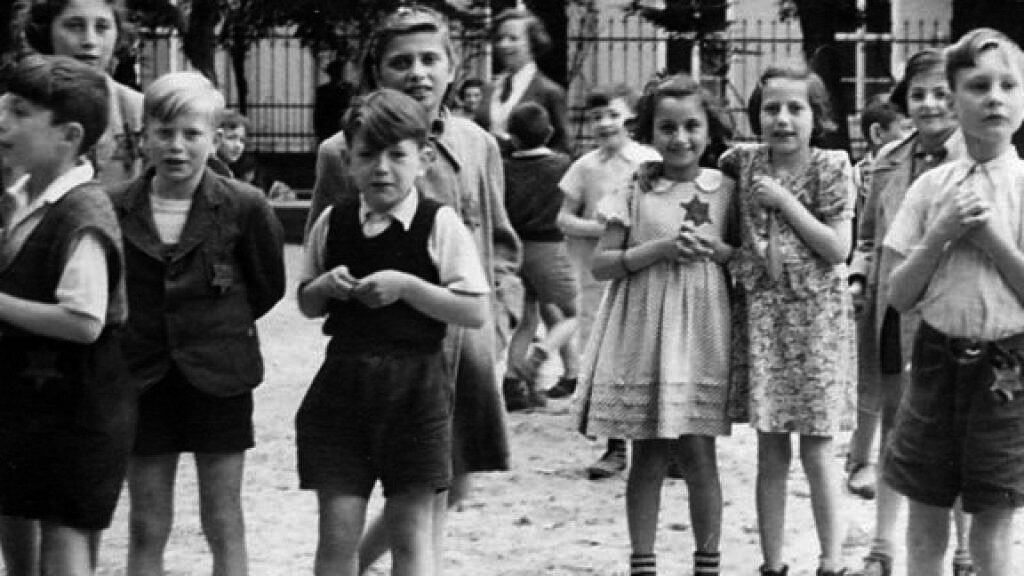
“With all the transports pouring into the ghetto, it soon became filled to capacity, and regular transports left Theresienstadt to go east. At that time, we were told people were being relocated to labour camps. Only during the last few weeks of the war did the majority of us learn what had happened to those who ‘went east’.”
Theresienstadt also served an important propaganda function for the Germans. It was a well-planned show camp used to deceive diplomats about the Holocaust. In 1944, an official beautification program was undertaken to mislead International Red Cross officials during an ‘inspection’ of the ghetto.
Buildings were cleaned up on the outside, shops appeared, and fancy street signs went up. The large huts in the town square used for war-related production were demolished and gardens planted.
“It was all a hollow sham,” Garry writes. “Lewis Carroll, in writing Alice in Wonderland, only had 10 per cent of the imagination the Germans displayed in setting up this sham façade.
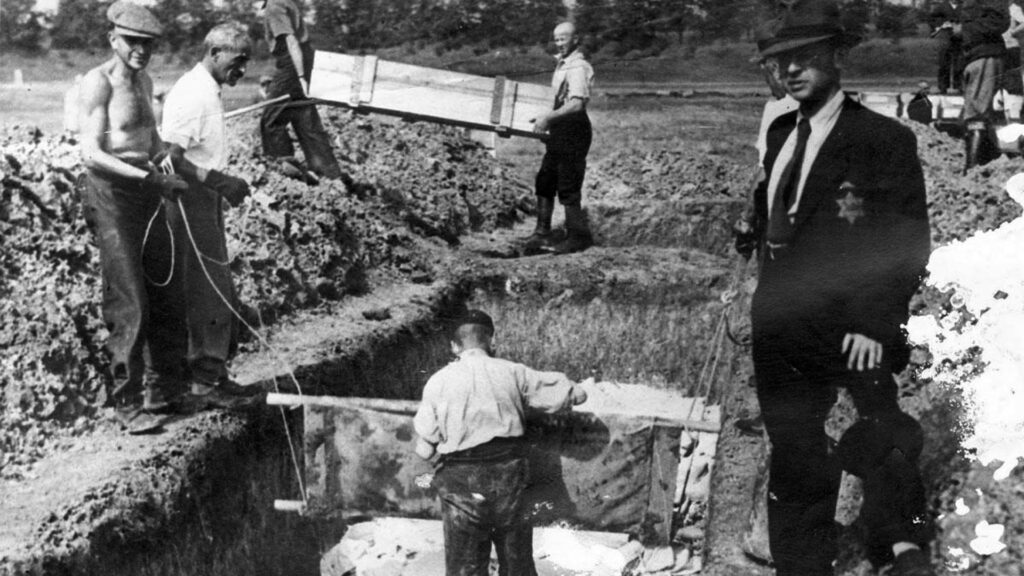
“But the beautification effort worked beyond their wildest dreams. The delegation, carefully chaperoned by the Germans, spent five hours in the ghetto. They saw what they were supposed to see and left to write a glowing report on the conditions in which Jews lived under the protection of ‘the kindly masters of the Third Reich’.”
Among the fortunate few who remained at Theresienstadt – and survived – Gary and his family emigrated to Australia in 1947 following the liberation of the camp in May 1945.
Despite the horrors of his early years, Garry has returned to Germany repeatedly over the past 30 years to educate the next generation on the lessons of the past, speaking to schools, educators and community groups about his wartime experiences.
He has spared no detail in sharing his story with his – mostly young – German audiences. His message has always been clear:
“I don’t blame your generation for the crimes of another. This could have happened anywhere if the conditions were right. We are all responsible for ensuring that hatred, racism and discrimination at its most deadly are not allowed to flourish ever again.”
In congratulating Garry on his Verdiensorden during an address to the House of Representatives in Canberra, Member for Goldstein Tim Wilson said it takes an extraordinary individual to turn tragedy into teaching.
“Your exceptional resilience inspires all of us and your efforts to ensure history’s lessons do not befall another generation are a critical part of building a better future for all of us,” he said.
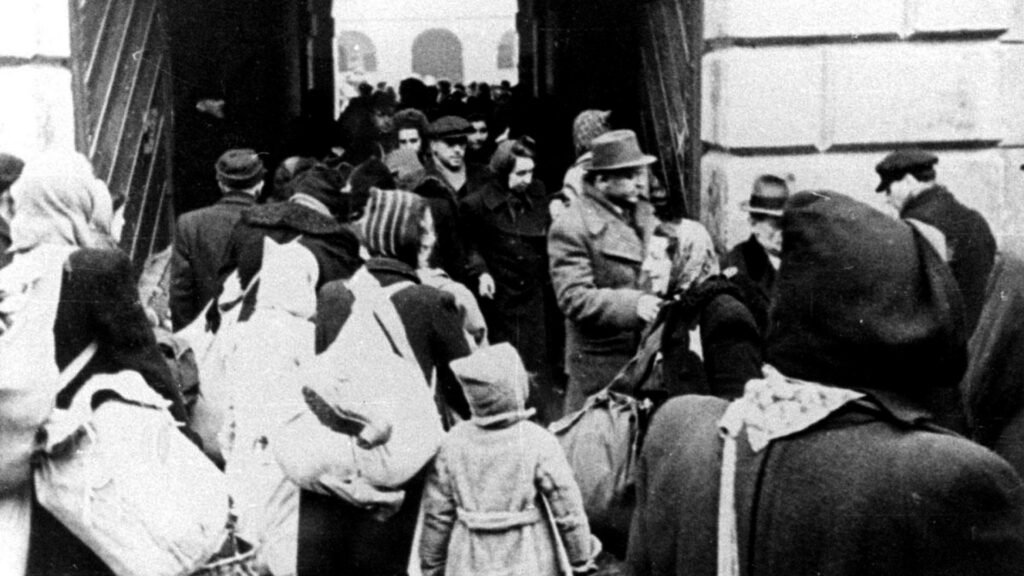
Garry’s son-in-law, Senator Kim Carr, also shared his story with the Australian Senate in Parliament House on September 6.
“Garry’s story of resilience and of rebuilding a once-shattered life is familiar among the migrant stories that make up our national narrative. What makes Garry unusual is his commitment to reconciliation.
“His story is not only about the past. It is vital for all of us today. It is a warning about what can happen when the foundations of both liberal and social democracy falter.
“This prestigious award honours you, your family and all who are willing to learn from the past to avoid repeating it.”
While it is unclear at this stage when it will be possible for Garry to receive his Verdiensorden award, it is most likely the Honorary German Consul in Melbourne will facilitate the presentation when COVID restrictions have eased.
If you would like to purchase a copy of A Look Back Over My Shoulder ($25), contact the Lamm Jewish Library of Australia via www.ljla.org.au
